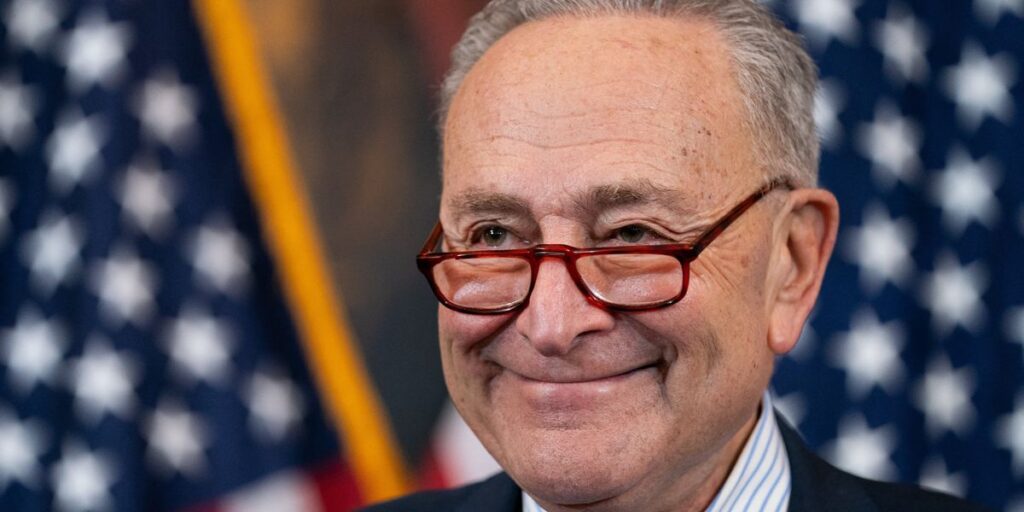In a decisive move to prevent a government shutdown, the Senate passed a bill early Saturday morning that will extend government operations into March while allocating over $100 billion in disaster relief for states heavily impacted by storms. The legislation, which garnered an overwhelming bipartisan majority with an 85-11 vote, followed a tumultuous period of negotiation amongst Republican lawmakers in the House. Tensions escalated as factions within the party grappled with demands from President-elect Donald Trump and influential billionaire Elon Musk, leading to significant delays in reaching an agreement on the government’s spending bill. Ultimately, the bill successfully passed the Senate, securing crucial funding while also denying Trump a significant priority: an increase in the government’s borrowing capability, which he sought to ease the pathway for future tax cuts during his anticipated second term.
Throughout the deliberations, Trump expressed dissatisfaction with the outcome, feeling that his demands were not sufficiently met, particularly concerning the debt ceiling. Despite his threats to find primary challengers for Republicans who opposed this increase, the vast majority of his party rallied to support the legislation without accommodating his requests. This dichotomy between Trump’s expectations and the subsequent actions of lawmakers was emblematic of the larger struggle within the Republican Party, revealing divisions that could have long-term implications for party unity. Senator Markwayne Mullin, a close ally of Trump, articulated this concern, emphasizing the problem created when the party failed to deliver on the president’s stated needs as they moved to pass a funding measure.
While the bill represents a significant bipartisan achievement, it did not encompass every provision that Democrats had aimed to include. Key democratic initiatives such as prescription drug reforms, increased pay for lawmakers, heightened restrictions on U.S. investments in China, and measures against revenge porn and hidden resort fees were stripped from the final version at the behest of Republican lawmakers pressured by Musk’s interests. However, Senate Majority Leader Chuck Schumer heralded the bill as a win for American families, highlighting contributions such as emergency aid for disaster-affected communities, an indefinite debt ceiling provision, and the avoidance of severe budget cuts. He framed the legislation as a necessary compromise that staved off immediate fiscal crisis while providing essential support to vulnerable populations.
The next steps following Senate approval involve sending the bill to President Joe Biden, who is expected to sign it into law. The administration has expressed strong support for the bill, underscoring its importance for managing ongoing disaster response efforts. In a display of his satisfaction, Musk took to his social media platform to recognize the efforts of House Speaker Mike Johnson for effectively reducing the bill’s size and cost, emphasizing his approval of the legislative outcomes despite the absence of certain provisions. This reflects the ongoing interplay of influence that major business figures like Musk have in shaping policy discussions within the Republican party and broader legislative framework.
Democrats are already looking ahead, pledging to advocate for the issues that were excluded from the recent bill in the next funding session scheduled for March. There exists a palpable frustration among Democratic lawmakers regarding the apparent prioritization of billionaire interests over working-class concerns, with some suggesting that this trend will shape future GOP legislative positions. Senator Chris Murphy articulated this sentiment, cautioning that the significant presence of billionaires could direct Republican support away from essential public policies, thereby impacting the broader legislative strategy as they approach future negotiations.
As the political landscape continues to evolve, the passage of this bill illustrates the fragility of bipartisan cooperation, the tensions within both major parties, and the influence of affluent individuals on legislative agendas. As the Senate and House navigate future funding requirements and confront ongoing fiscal challenges, the outcomes of such negotiations will no doubt carry significant implications for public policy direction and party dynamics in both the short and long term. This situation lays bare the intricate connections between political leadership, business interests, and their impact on crucial governance issues, highlighting the ongoing relevance of this interplay as America moves forward into a new political era post-election.

